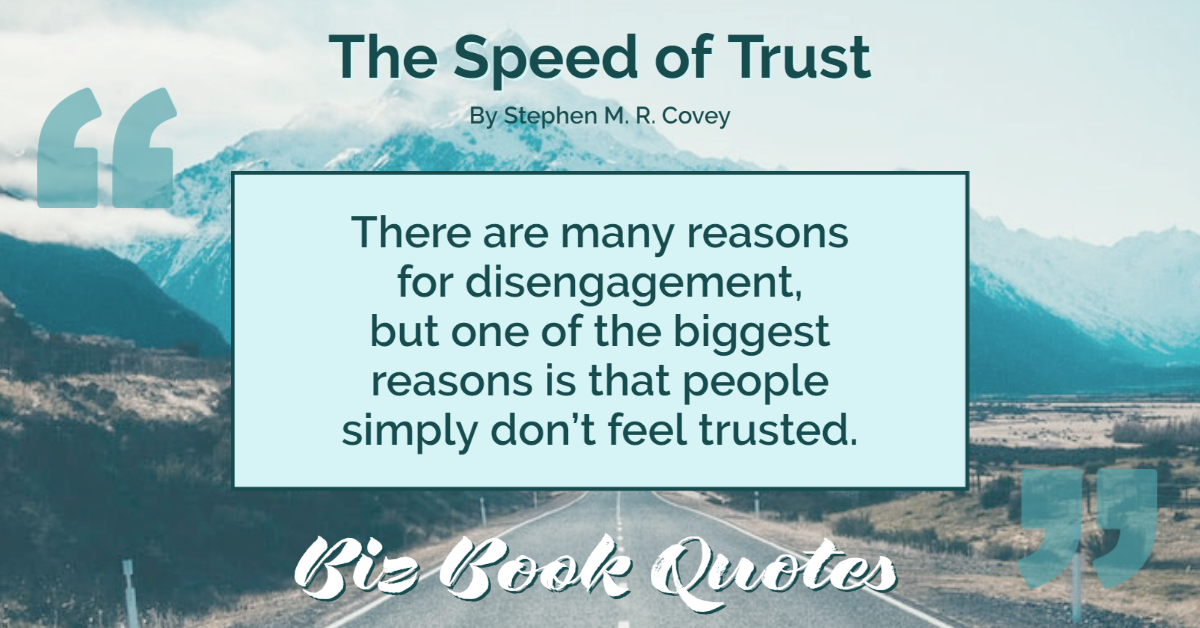 |
There are many reasons for disengagement, but one of the biggest reasons is that people simply don’t feel trusted.
|
251 |
 |
Low trust creates disengagement, which leads to turnover – particularly of the people you least want to lose.
|
252 |
 |
When trust inside an organization is low, it gets perpetuated in interaction in the marketplace, causing greater turnover among customers, suppliers, distributors, and investors.
|
253 |
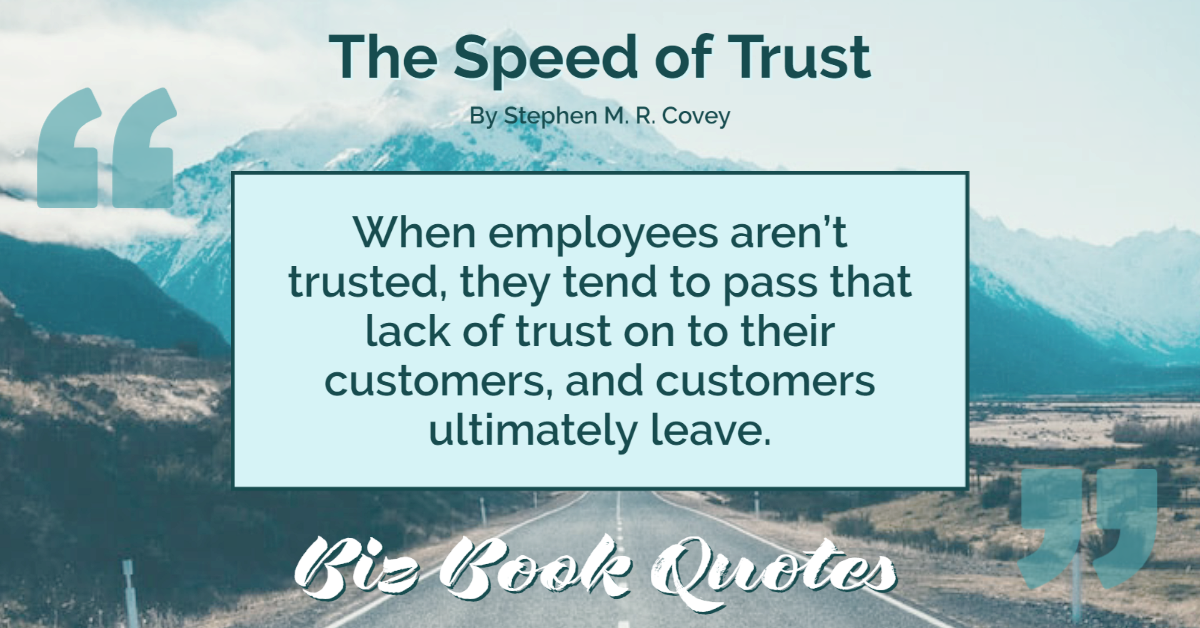 |
When employees aren’t trusted, they tend to pass that lack of trust on to their customers, and customers ultimately leave.
|
253 |
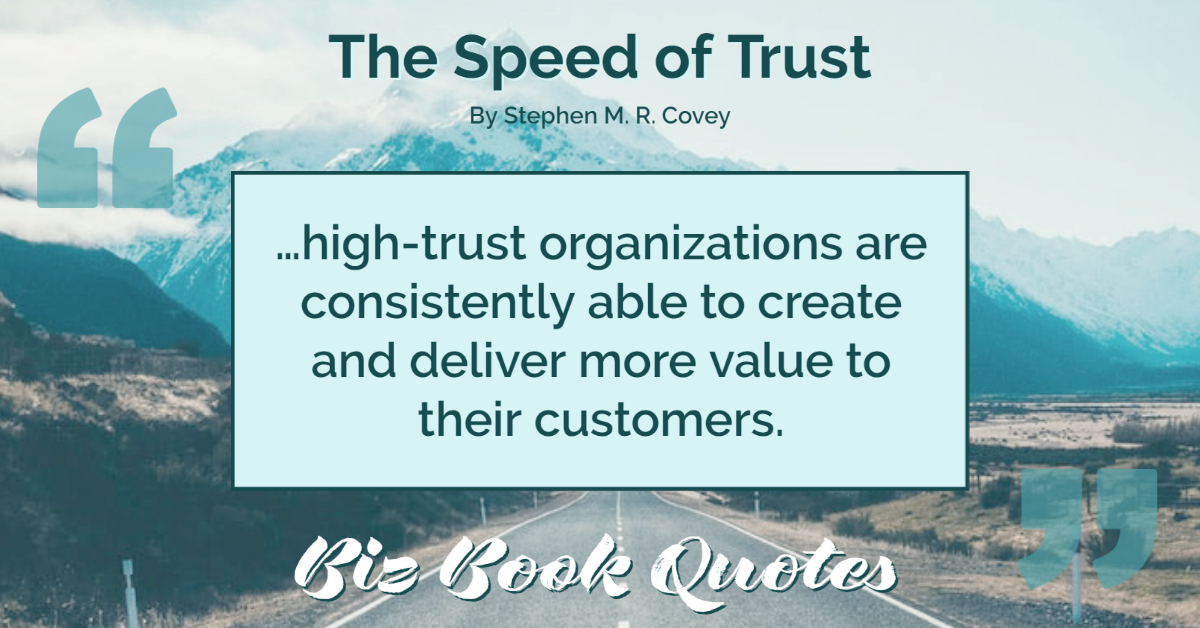 |
…high-trust organizations are consistently able to create and deliver more value to their customers.
|
255 |
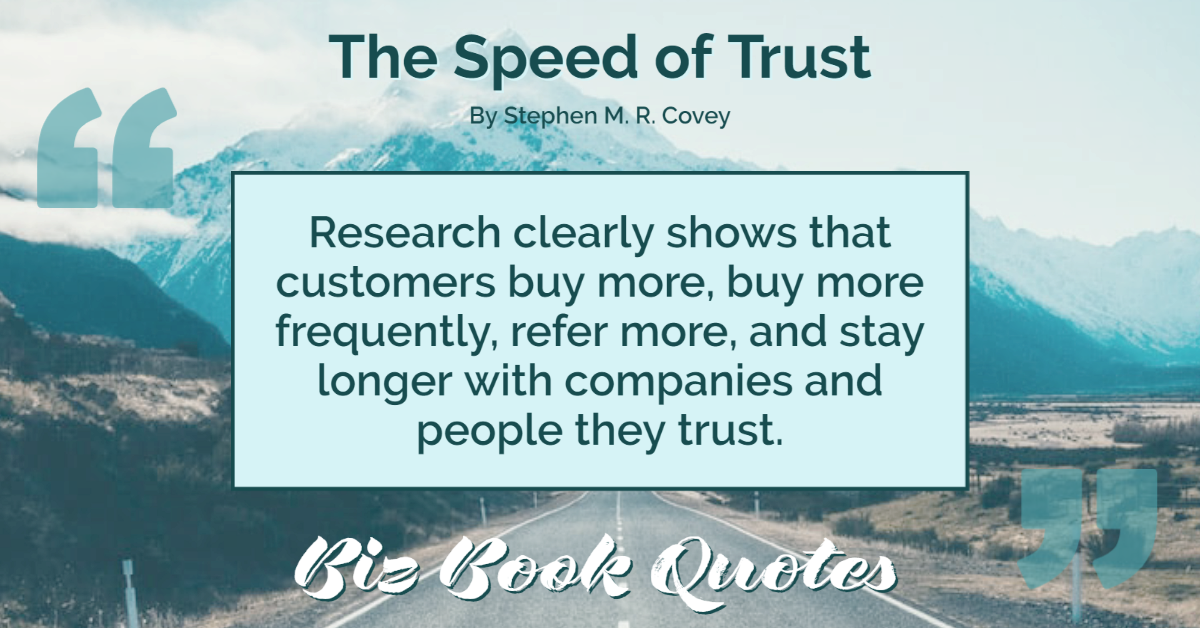 |
Research clearly shows that customers buy more, buy more frequently, refer more, and stay longer with companies and people they trust.
|
255 |
 |
High-trust company environments foster the collaboration and teamwork required for success in the new global economy.
|
256 |
 |
Without trust, collaboration is merely cooperation, which fails to achieve the benefits and possibilities available to true collaborators in the knowledge worker age.
|
256 |
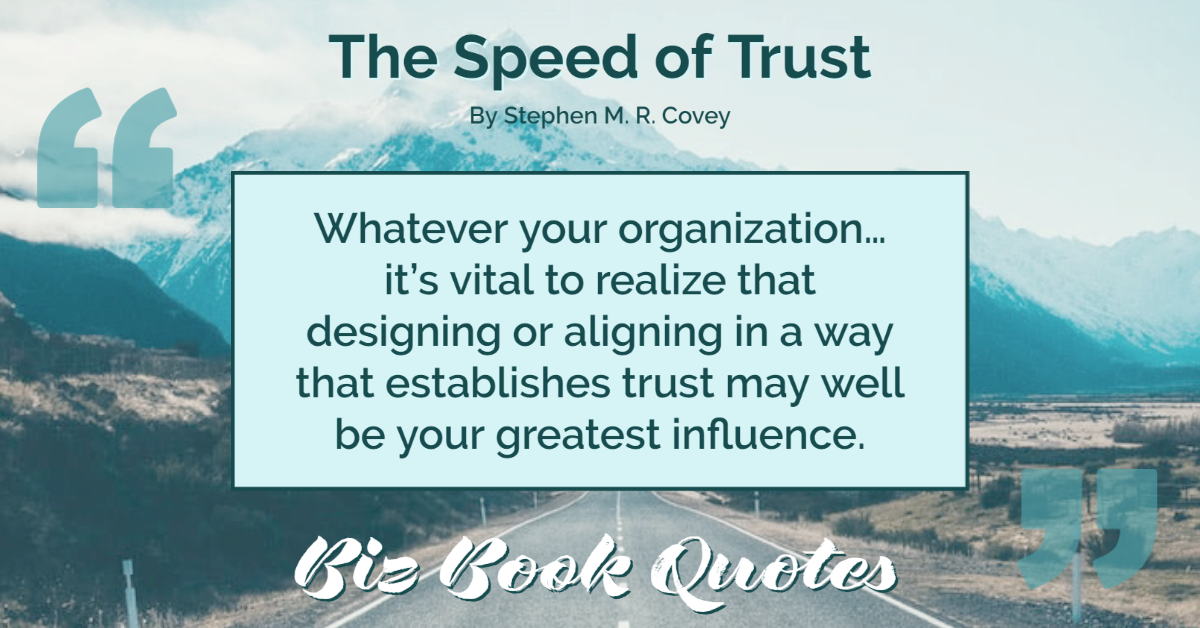 |
Whatever your organization… it’s vital to realize that designing or aligning in a way that establishes trust may well be your greatest influence.
|
260 |
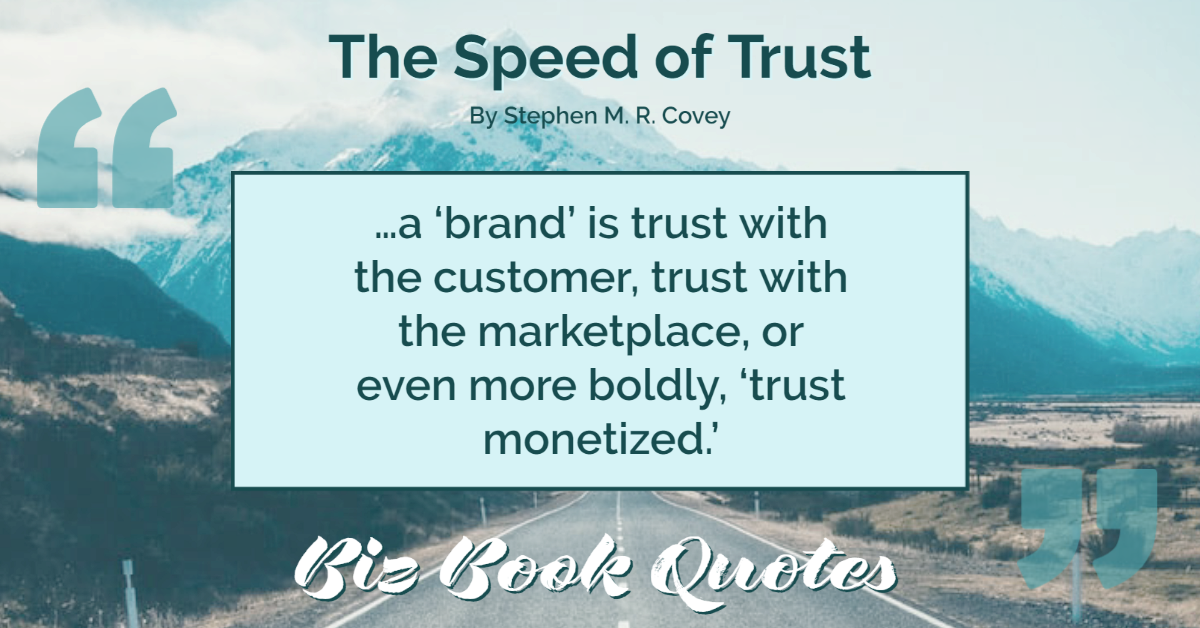 |
…a ‘brand’ is trust with the customer, trust with the marketplace, or even more boldly, ‘trust monetized.’
|
263 |